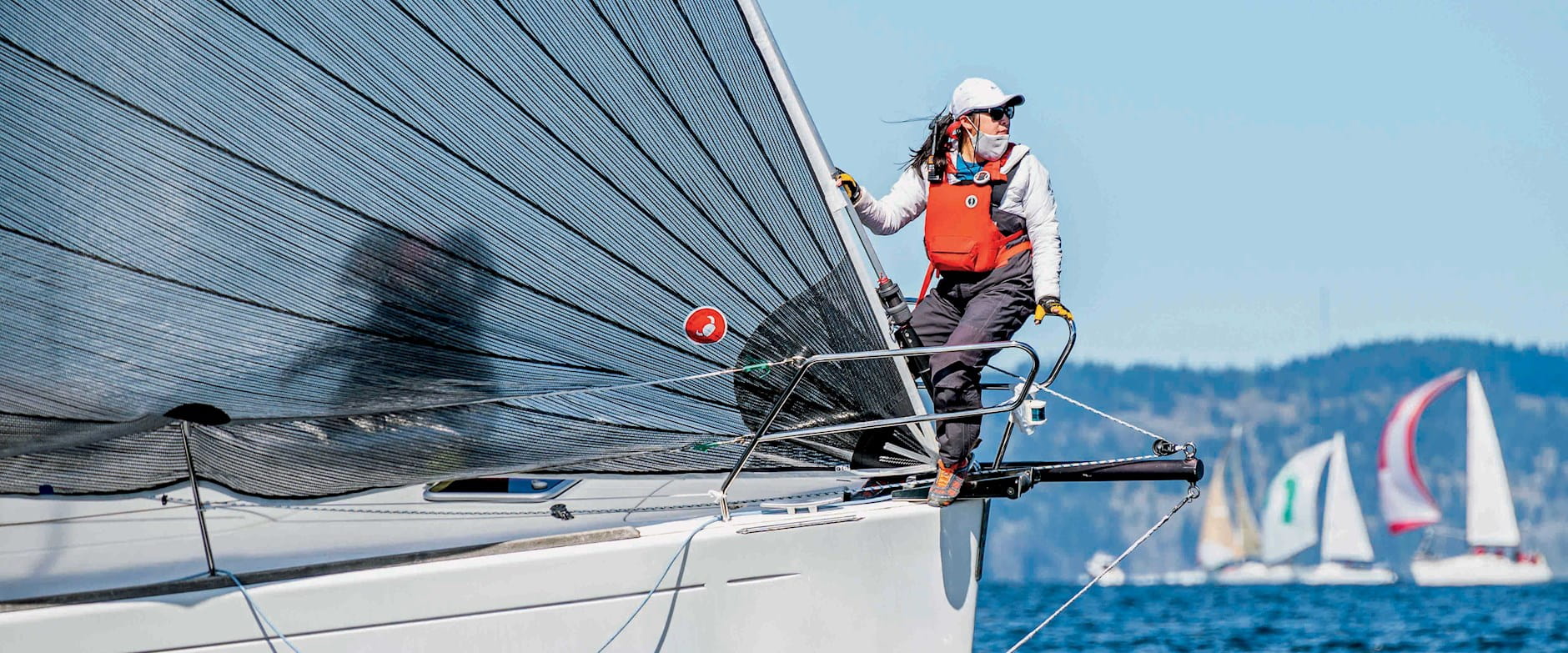
How to Make a Good First Impression
A professor, current student, and alumnus weigh in on the best ways to make a meaningful first impression—whether you’re presenting, interviewing, or networking.
How to Make a Good First Impression
Lisa Mize
On her first day at Chicago Booth, as Elise Sivilay, ’12 (EXP-17), was listening to classmates introduce themselves, one student’s introduction caught her attention. “He said he enjoyed sailing, and that there was a European regatta series that looked fun,” Sivilay recalls. “And he said, ‘Anyone who is interested is welcome, even if you’ve never been on a boat.’”
She was curious, but cautious. When a group of Booth students who accepted the offer returned from a prestigious regatta talking about how much fun they had had, she was convinced: she took the leap.
Her first introduction was aboard a boat during a big race in Greece. Sivilay says it wasn’t all smooth sailing: there was a broken winch, high winds and seas, and inexperienced people on board, including herself. As can often be expected, the smart, accomplished businesspeople onboard all had strong personalities and varying opinions, and there were language barriers, all of which made communication and execution difficult. When she confided her concerns to another Booth colleague, an experienced female sailor, she got an unexpected answer.
“I said, ‘This doesn’t feel safe,’” Sivilay recounts, “and my Booth colleague said, ‘It’s not a democracy on a boat.’”
Ultimately, there’s a leader who needs to make the final decision on the basis of experience, the information from the team, and a position of authority, Sivilay explains. The skipper of the boat—like the manager—provides guidance and direction, while keeping everyone safe and productive. The skipper creates the space to keep everyone informed, safe, and learning while they reach their goal. And in racing, the goal is to finish the race first and fast. So while the environment on the boat felt chaotic, ultimately it was out of Sivilay’s hands—she had to trust the group to execute their roles, do her part, and trust the skipper to lead.
“People need to understand their roles and how everything connects together to make things work efficiently and smoothly—which is also how we want teams to work within a company.”
The statement connected her business background with sailing—and strengthened her understanding of both.
“There’s a culture and there’s a hierarchy and a way of doing things,” Sivilay says. “People need to understand their roles and how everything connects together to make things work efficiently and smoothly—which is also how we want teams to work within a company.”
Sivilay, who has worked for large companies such as IBM, SAP, and Microsoft as well as smaller startups in various roles ranging from sales to director of enterprise partner, says she’s between jobs at the moment but is considering turning her sailing hobby into her second career.
“It’s just as much a mental game as it is a physical challenge,” she explains. “It really helps you focus and be very present. Instead of being distracted by what’s going on in the world, it forces your body, your brain, and all your senses to focus.” Since there’s physical danger involved, you need to think several steps ahead and have two or three backup plans ready in an instant, she says.
Sailing is also a sport that Sivilay has been capable of doing throughout the COVID-19 shutdowns, and that was extremely accessible in her community. She went sailing more than 150 times over the past 18 months, and is working on her captain’s license and sailing instructor certifications. Sailing may seem like an elite sport, but people can be generous with their time and with access to boats, especially when they see the dedication and passion for it.
“I want to provide that back into the community,” Sivilay says, suggesting that those interested join a sailing organization to sharpen their skills. She joined the Seattle Sailing Club and was certified through the American Sailing Association.
Booth, Sivilay says, honed her brain to think multidimensionally. Sailing allowed her to bring it to life. Together, they made her into the business seafarer she is today.

A professor, current student, and alumnus weigh in on the best ways to make a meaningful first impression—whether you’re presenting, interviewing, or networking.
How to Make a Good First Impression
Triathlete Sarah Alexander, ’15, wants to pass on the resilience that she has learned from her own athletic experience.
A Triathlete Pays it Forward
Professor Ann L. McGill, MBA ’85, PhD, ’86, invites us inside a course that aims to transform the workplace, one boss at a time.
Be the Boss You Wish You Were